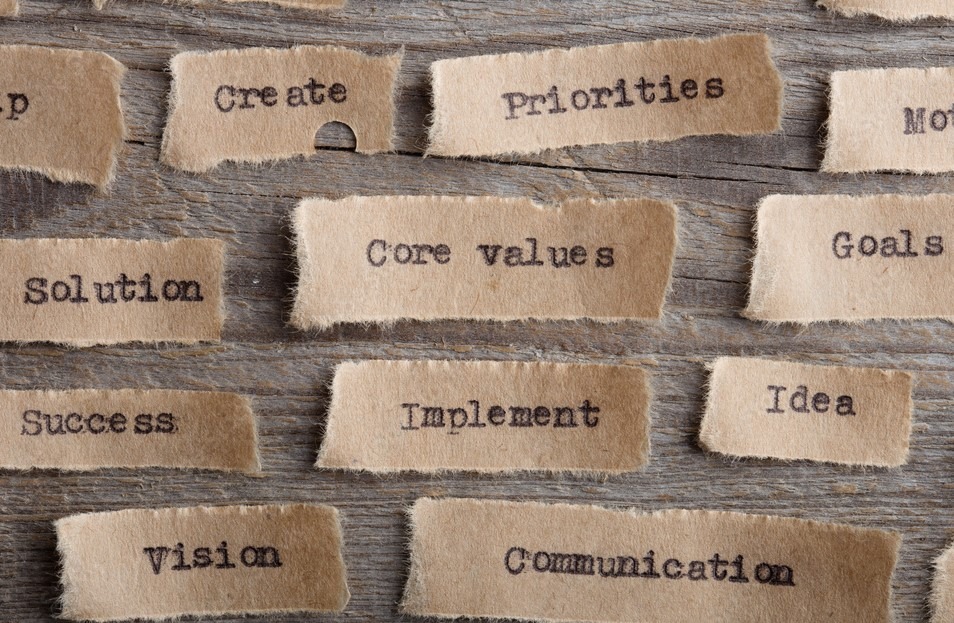Unsurprising to some and maybe a bubble-burst to others, grand romantic gestures don’t really do too much for long-term relationships. Such acts simply aren’t enough to sustain meaningful and healthy romance, and are better regarded as the cherries on top. Instead, truly intimate relationships require a foundation of friendship, which is cultivated and maintained through simple, everyday moments of connection (Gottman & Silver, 2015).
ACTUALLY, *DO* SWEAT THE SMALL STUFF
So, small moments matter. But just how small are we talking? To put it into perspective: Passing each other in the kitchen holds as much opportunity for intimacy-building as does that annual beach vacation. (Perhaps that’s why more successful couples have emerged from the reality gameshow Big Brother than The Bachelor/Bachelorette!). Gentle or playful touches, genuine questions, appreciative smiles, encouraging texts, and courteous gestures can all help prevent that taken-for-granted feeling. Relationship expert John Gottman popularly refers to these little motions as “bids for connection”, and examples of them are truly infinite (Gottman & Silver, 2015, p. 88). Basically, positively interacting with your partner (just briefly!) during life’s mundane moments is what relationship maintenance is all about.
CONSISTENCY IS KEY
Just as the body benefits from regular patterns of movement, nutrition and sleep, relationships need ongoing nourishment. It does nothing for your overall physical fitness to go all out at the gym once a month. However, lower-intensity workouts at more consistent intervals can produce measurable change, or at least maintain a healthy condition. Similarly, an established sleep routine will do far more for your wellness than cycles of sleep deficiency and hard crashes. In the same vein, oscillating between food restriction and overconsumption will take its toll on your body and mind.
Humans aren’t designed to do things in extremes; rather, we are homeostatic creatures striving to maintain a naturally balanced state. In our relationships, such healthy stability is maintained through a 5:1 positive-to-negative ratio of daily interactions (Gottman & Silver, 2015). In other words, that week-long trip you wait for all year for? It can’t repair months of relationship wear-and-tear or neglect. You’ve got to put in consistent work for a relationship to thrive and be experienced as fulfilling in the long-run. It comes back to those bids for connection: An increased number of (seemingly) humdrum exchanges often yields a happier couple.
PICK UP THAT CHANGE
If you saw a $20 bill laying on the ground, would you put in the effort to pick it up? Most people would probably say “yes.” A lot of people would also say “yes” to picking up even a loonie. But get into smaller change, like quarters and nickels, and fewer folk will stop and bend over. This is also how we (unfortunately) function in relationships when it comes to responding to another’s bids for connection.
Sometimes bids show up in big or more obvious ways (e.g. a direct request for help). More often than not however, they’re showing up as smaller coins on the street—which really add up over time! This likening of bids to money is an important analogy in Gottman’s research. He posits that every relationship has an Emotional Bank Account (EBA), which functions on an exchange of emotional currency (Gottman & Silver, 2015). Pick up on those bids, and you’ll build up your savings. Build up your savings, and have a happier relationship.
SAVE IT FOR A RAINY DAY
When each partner is regularly depositing into their joint EBA, the couple is protected against “rainy days.” Life stressors don’t take as much of a toll, and conflict is less likely to arise. When conflict when does pop up, it doesn’t escalate into something unbearable. In the beginning or honeymoon stages of a relationship, couples are usually racking up the savings and making minimal withdrawals. For many, that way of relating changes over time, and more conscious efforts need to be made around emotional spending/saving.
If small, petty issues are frequently leading into big blow-ups for a couple, it’s a safe bet that their EBA is no longer in good standing. Consider this: If you have $1000, and raising an issue about laundry costs $5, is the expenditure worth it? What if the two of you only have $40 in your EBA? The less savings in the shared account, the more the relationship feels the weight of any withdrawals. Remember, if an EBA is in overdraft, you’re also paying interest on any additional purchases either of you makes.
Although picking your battles can be helpful at times, this information isn’t intended to suggest a strategy of conflict avoidance. Rather, it serves as encouragement to build up those savings! There are a few ways to do this, but a key one is to look out for those quarters and nickels.
TURN TOWARDS, NOT AWAY
Masters in relationships tend to pick up that “street change” to fund their EBA roughly 86% of the time (Gottman & Silver, 2015). That number stands in stark contrast to unhappier couples, who tend to do it only about 33% of the time. Again, small moments matter. Let’s illustrate with an example:
You and your partner are driving around on a weekend, completing some errands. A song comes on the radio, and your partner says “Oh, I like this one!” Right there, they’ve dropped a quarter on the street for you to either pick up or pass by. What do you do?
There are countless ways to potentially turn towards that bid for connection (even if you hate the song). Perhaps you turn the radio up, or ask a follow-up question about your partner’s interest in what’s playing, or simply say “Yeah, this band has a great energy.” In each of those instances, you’ve made a deposit into your EBA. Moreover, that investment usually compounds because it leads to further positive interaction; each of you is now more likely to make and turn towards ongoing bids.
MISSED OPPORTUNITY
Conversely, you might turn away from the bid, and not say or do anything (i.e. walk past that quarter). When this happens in relationships, more often than not, it’s unintentional. On the surface, it looks like your partner was just thinking out loud, making a casual statement as opposed to an invitation. However, they might (consciously or unconsciously) experience a lack of response as rejection, which can lead to a natural decrease in bids moving forward. Again, a snowball effect, but in a negative way. In worst-case scenarios, perpetually missed bids and subsequent feelings of invisibility or unimportance can lead a partner to start making bids elsewhere.
That’s the thing with small moments—we frequently miss them for the opportunities that they are. One of the best skills you can develop is getting beyond the surface and recognizing the underlying value in the simplest actions and phrases. The good news it that just becoming aware of this concept often helps couples start investing in their EBA once again 🙂
IT TAKES ONE PERSON TO CHANGE THE DANCE
If your relationship is in a state of “stuckness” and your partner isn’t ready to do joint work, there’s still hope for change. Although we can’t predict the form it would take, we’re confident things can indeed be different in your dynamic—it really does take just one person to switch things up! Unstuck Psychologists are skilled at functioning as mirrors. With your collaboration, we can reflect the unconscious patterns that you as an individual may be bringing into your relationships. We can help you challenge your unhelpful belief systems and ways of being and strengthen the ones that are already proving useful to you. If such specialized support is of interest to you or if you have more questions, please reach out! You can give us a call at 780-784-8825, send an email to [email protected], or connect with us through our contact form. In-person, phone, and video are all available session formats.
Shayla Drewicki, MC, RPsych
References
Gottman, J.M. & Silver, N. (2015). The seven principles for making marriage work: A practical guide from the country’s foremost relationship expert (2nd ed.). New York: Harmony Books.












